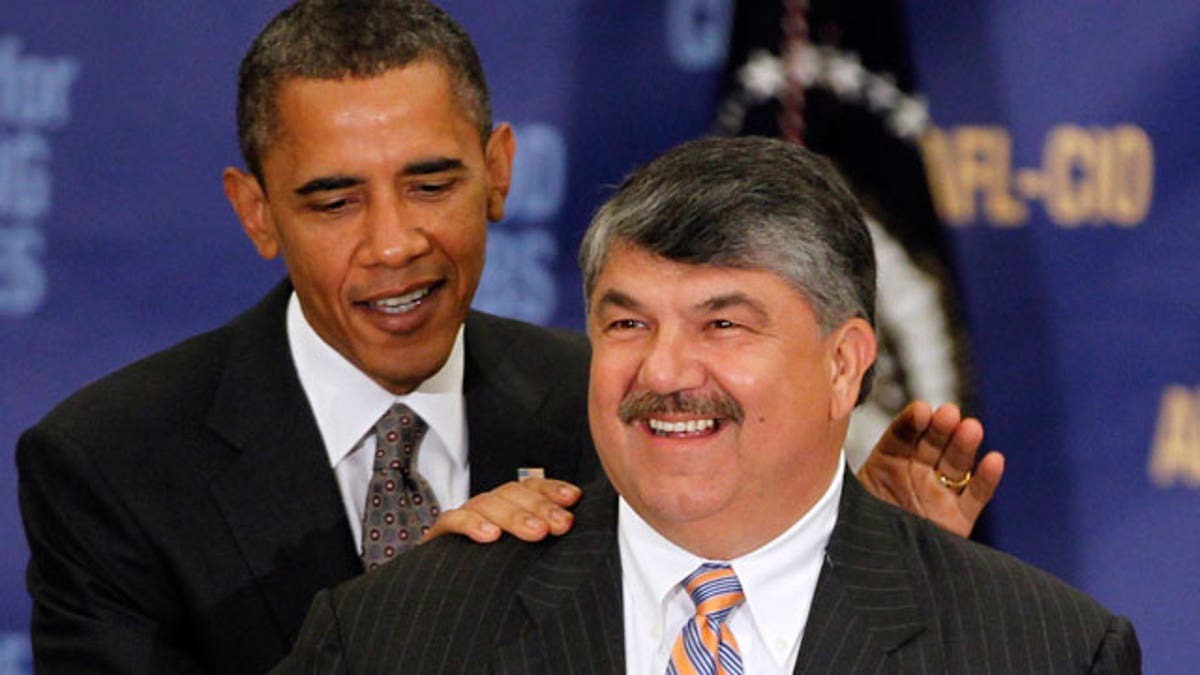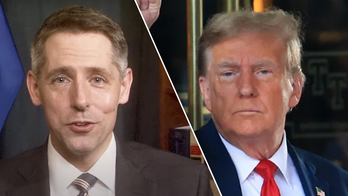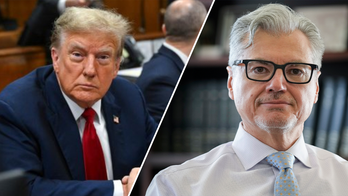
In this Aug. 4, 2010, file photo President Barack Obama stands with AFL-CIO Presidet Richard Trumka after speaking about jobs and the economy in Washington. (AP)
Bracing for an election cycle that will be marked by heavy outside spending, massive voter registration drives, and 16 months of presidential politicking, the American labor movement confronts a daunting slate of demographic changes and other trends that could make 2012 a rocky year for unions.
Federal records show labor unions spent close to $100 million in the 2010 midterm cycle – over $20 million more than what they spent in 2008 – but nonetheless saw their share of the electorate drop from one cycle to the next, from 21 percent to 17 percent.
That the unions may be spending more money to achieve diminished results would reflect their shrinking percentage of the population as a whole. In 1950, an estimated 38 percent of the American labor force belonged to a union; today, that figure stands at around 12 percent, and even lower – 7 percent – for the private sector. This diminution in labor’s ranks is all the more significant when juxtaposed with the tripling of the American labor force over the same time period.
What’s more, recent weeks have witnessed some signs of fracture in the normally solid relationship between organized labor and the Obama White House.
“Let me put it this way,” Vice President Biden told a Teamsters audience in Las Vegas last Friday, after raising the prospect that some rank-and-file members might vote Republican. “Don't come to me if you do! You're on your own, jack!”
That warning followed numerous veiled expressions of displeasure with the White House and congressional Democrats voiced by top union executives in recent weeks.
AFL-CIO President Richard Trumka told the National Press Club on May 20: “You can be a friend and make a mistake once in a while. And we forgive you for that mistake. The difference is this: that we're not going to spend precious resources helping candidates that don't stand up and help us.”
"I have a message for some of our 'friends,’" Trumka reportedly told another Beltway audience last month, sharpening his tone. “For too long, we have been left after Election Day holding a canceled check, waving it about [and saying] 'Remember us? Remember us? Remember us?' – asking someone to pay a little attention to us. Well, I don't know about you, but I've had a snootful of that s---."
Undaunted by such talk, the National Education Association (NEA), which represents teachers and school administrators and is one of the largest unions in the country, voted at its annual convention in Chicago on Monday to endorse President Obama for re-election. Still, analysts took note of the margin of victory for Obama in the NEA’s rank-and-file vote – 72 percent in favor, 28 percent opposed.
“Maybe some of them wanted to do it next year,” said Larry Sabato, director of the University of Virginia’s Center for Politics. “But it seems to me that that was also a cautionary note by a union that is overwhelmingly Democratic.”
Representatives from three major unions – the NEA, the Service Employees International Union (SEIU), and the American Federation of State, County, and Municipal Employees – declined to respond to requests for comment Tuesday by Fox News.
GOP presidential candidates have already begun turning up the heat on big labor. Speaking at a town hall in New Hampshire Tuesday morning, front-runner Mitt Romney praised the role that unions have historically played in developing the American economy.
But the former Massachusetts governor then blasted Obama for pursuing a “unions agenda” at the expense of today’s struggling economic recovery.
“He stacked the National Labor Relations Board with some labor union stooges,” Romney said, “and again, if you're in a business that requires a lot of people, you have a lot of employees, that's going to make you pull back because you don't know what your cost of labor is going to be.”
Perhaps fearful of alienating rank-and-file union members, Romney added: “There are some unions that continue to train their workers effectively…But in some cases the union bosses, the union CEOs that are running the unions, perhaps put the interests of themselves ahead of the interests of their workers.”
Another GOP hopeful, former Minnesota Gov. Tim Pawlenty, released a TV ad for Iowans aimed at inoculating him from the effects of the government shutdown in his home state.
“Minnesota gripped by one of the longest transit strikes in history. Why?” an announcer asks in the ad. “Because Gov. Tim Pawlenty refused to cave in to government unions. Result? Pawlenty won.”




